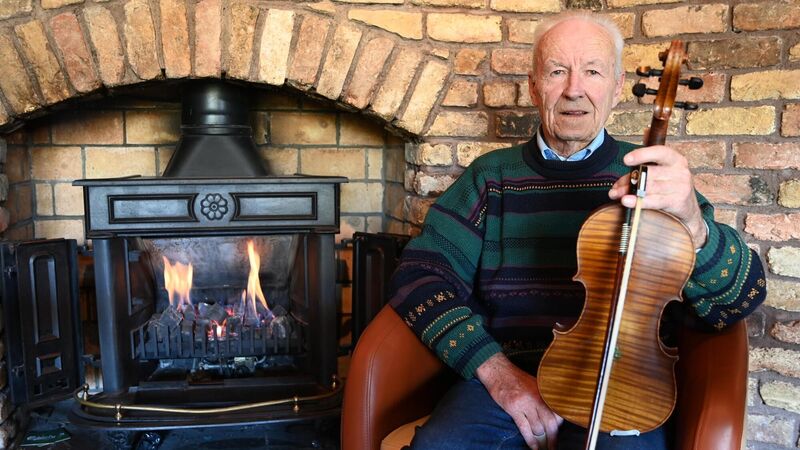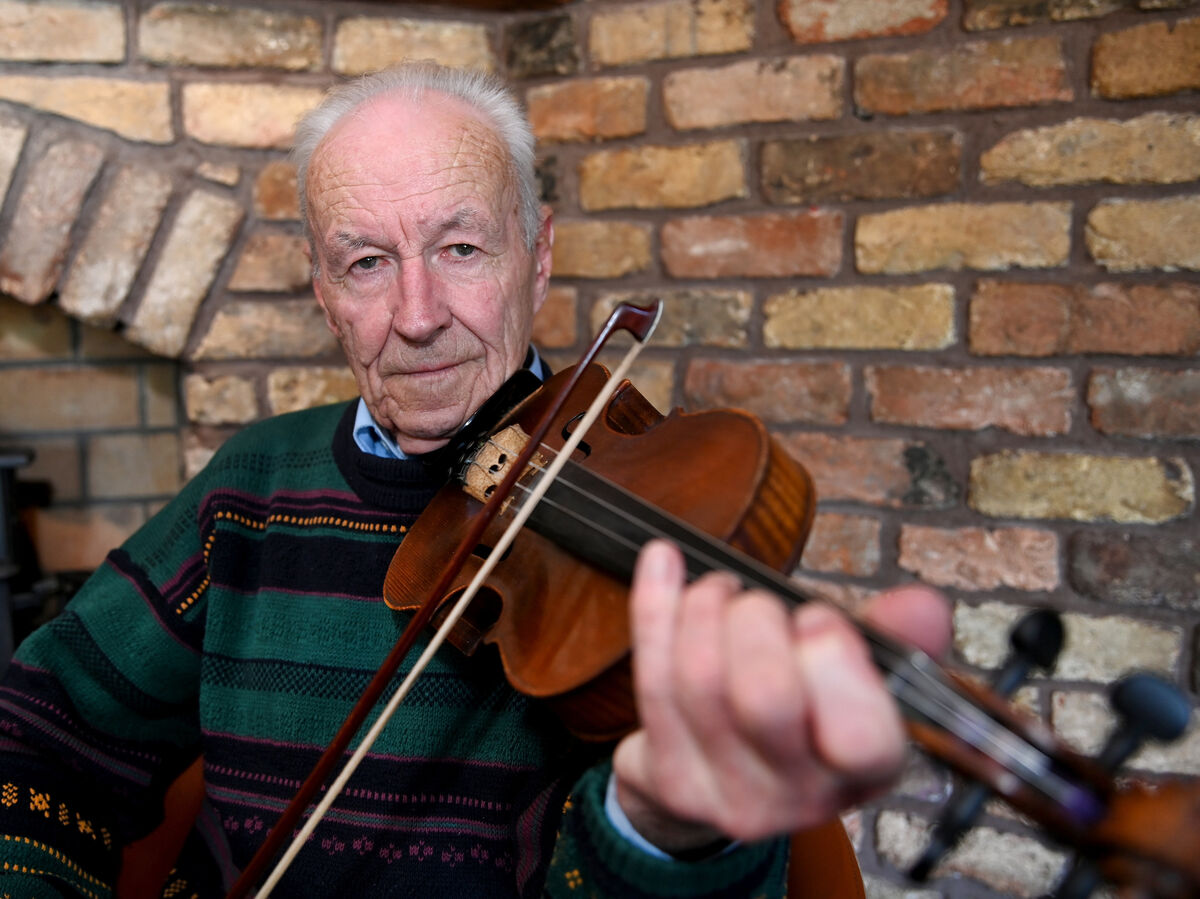Sliabh Luachra fiddler John Walsh: 'I’d much prefer to learn a tune by ear'

John Walsh will be presented with a ‘Dedication to the Music of Sliabh Luachra Award’ during a concert at the Patrick O’Keeffe Traditional Music Festival in Castleisland on October 26. Picture: Eddie O’Hare
If Sliabh Luachra defies precise geographical definition and exists rather as a “state of mind”, as the late Castleisland journalist Con Houlihan famously described it, then shrouded in those rushy mountain mists is the equally enigmatic music of John Walsh.
A native of Derrygallen, Derrygallon, Doire Ghealbhan, or perhaps Derrygalun, near Kanturk in North Cork, Walsh’s tunes have no names and many names, yet are among the most popular in the Sliabh Luachra repertoire, from its Cork-Kerry-Limerick heartlands to its furthest Japanese and Russian outposts.
Now resident in Cork city, Walsh eschews the term ‘composer’ and does not readily commit his music to paper or recording, but his tunes are ubiquitous in sessions despite their creator’s relative anonymity. Recorded by Jackie Daly and Johnny O’Leary, celebrated on Russian album , their popularity surprises him, says Walsh, who is reluctant even to hazard a guess at the number of tunes he has created.
“The polkas have become well known because people wanted them, but I have no idea how many there are,” he says. “I’d remember the ones that have become public but there could be more that I’d have forgotten and might think of again. There were jigs, reels, slides, waltzes, any kind of thing at all.”
Though Walsh is similarly disinclined to name his tunes, others have done so, resulting in more than a little confusion over their identity. “I didn’t put any name on them at all. It was when people wanted to record them they had to have a name and if they were teaching, especially to children, then they’d ask to put a name on it,” he says. “I’d say ‘isn’t gan ainm [without name] good enough?’ In the finish they’d pick whatever name it was.”
Thus John Walsh’s Polka is also variously known as Derrygallen Bridge and Jimmy Welshe’s. “At the moment I am aware of about 16 names,” says Walsh. “And my presumption is that it’s on lots of [recordings] that I don’t even know of. It’s called Newmarket and Lixnaw and Ballyvourney…”
He does admit to once, a long time ago, coming up with a tune title. “Secretly, when I put a name on it, it was ‘Gob Lachan’, which is a duck’s beak,” he says, though therein hangs another tale. Gob Lachan refers not to a waterbird but an area of land near Walsh’s homeplace, where some say the building of a road through a field once “cut off a tiny little section and people put that name on it - it was just like a duck’s beak”.

Others, however, think it’s in another townland, cautions Walsh. “There’s no clarity about it.” Haziness too surrounds the order in which parts of one of his most popular tunes should be played.
The polka, which he “hadn’t much time for” when he first thought it up has sparked debate, appearing on recordings and written notation with its first and second parts reversed.
“It doesn’t bother me at all,” Walsh asserts. “Fine if somebody wants it that way, but it would be hard enough to be thinking of it. It’s like singing the second verse of a song first.”
The transposition has led on occasion to the polka being repeated on loop in sessions until musicians settle on how it should end. “And some people, when it’s played in the way it was originally, first part first, second part second, say ‘that’s wrong’,” says Walsh.
Usually, however, hearing his tunes travel the world comes as a pleasant surprise. “If I was away anywhere or abroad and I heard it coming out of a place I would smile then and say ‘don’t tell me…’, which has happened quite a bit.”
Despite spending his working life as an RTÉ technician, Walsh is reluctant to record his tunes for posterity. “Someone said to me only the other day, why don’t you record them? There are so many ways now, phones, whatever, and I said that’s great but what about if I thought of it in the car, driving on the motorway? Imagine playing a fiddle inside in the car doing 60 miles an hour.”
Though he has intricate knowledge of the notation methods of Sliabh Luachra masters Tom Billy Murphy and Patrick O’Keeffe, his uncle Sonny Riordan having been a pupil of O’Keeffe, Walsh is also loath to impose definitive written forms on his tunes. “To write them down, it isn’t that I would be incapable of doing it but I wouldn’t have the interest,” he says. “And I’d much prefer to learn a tune by ear than from written notes.”
While his fiddle-playing was influenced by former pupils of O’Keeffe, who died in 1963, the continuation of the master’s legacy in turn owes a debt to Walsh.
Prior to the 30th anniversary of O’Keeffe’s passing, Walsh advanced the idea that the remaining O’Keeffe pupils, including his uncle Sonny, might play together in a recorded session, which could form the highlight of a festival.
Another three decades later, that festival is going strong and this month honours Walsh’s understated efforts with a ‘Dedication to the Music of Sliabh Luachra Award’.
“The very existence of the Patrick O’Keeffe Festival can in ways be attributed to John,” says festival spokesperson Conor O’Mahony. “It was John that suggested to RTÉ’s Peter Browne back in the early 90s that RTÉ should make a documentary about the ‘Sliabh Luachra Fiddle Master’. Peter made the award-winning documentary, which became the inspiration for the foundation of the festival and the rest, as they say, is history.”
- Patrick O’Keeffe Festival, Castleisland, Co Kerry, October 24-28. See: patrickokeeffefestival.com



